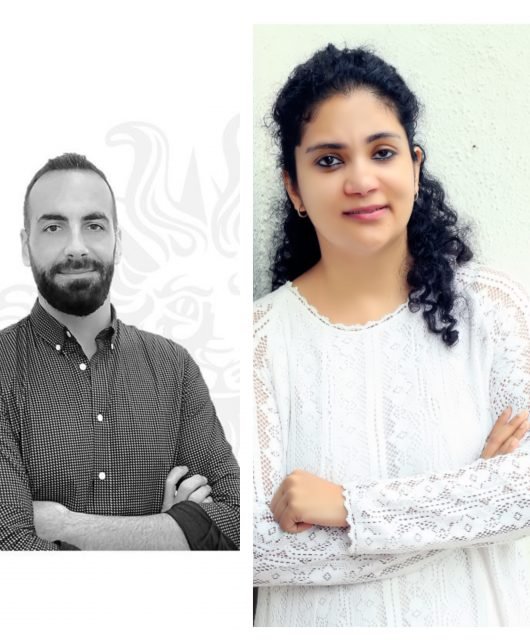Does A War For Talent Really Exist?
By: Nikki Samson, Founder, NS Search

It is not uncommon to hear marketers discussing the ‘war for talent’, but does it really exist? I do not think it does. What I do believe exists, however, is a battle for skills.
The war for talent: The war for talent is a term coined by McKinsey & Company in 1997 and refers to an increasingly competitive landscape for recruiting and retaining talented employees. It appeared in an article published in The McKinsey Quarterly 1998 Number 3.
There has been a steady and fluid movement amongst employees since the pandemic, with individuals re-evaluating their personal goals and priorities, and company needs changing and evolving. What this has meant is that there is a constant pool of available talent – so where has the misconception of a war for talent come from?
In many cases, the issue is rooted in employment practices and procedures, or lack thereof. Historically, hiring has been focussed on formal academic education and time spent in previous roles, but that approach is fast becoming antiquated. Instead, a skills-first recruitment process should prevail, to match modern business needs and the transforming work landscape.
When it comes to emotional intelligence and human-centric skills, these are high on the lists for a majority of businesses and hiring managers. The ability to manage and communicate with teams effectively, tackle problems with creative solutions, manage time effectively, work collaboratively, and empathise with others are paramount when searching for the right fit in a new hire. Given that these are the skills that are more likely to be innate within an individual, rather than taught, soft skills give a potential candidate a huge upper hand – but it is not always easy to portray these on a CV.
From a technical skills perspective, it is increasingly easy for savvy and entrepreneurial individuals to upskill themselves with online course and self-driven learning, something that might not always make it onto a CV. Where there are not always training opportunities within companies, yet the demand for experience with AI, sustainability and CX is higher than ever before. From my perspective, in many cases finding an individual who is passionate enough to engage in online learning or to self-teach a skill is far more advantageous than someone who has completed a degree just to put a fancy university name on their CV. Not only does it mean that they will bring added vigour to a role that is rooted in a personal passion, but the fact that they embraced that passion and took the initiative to pursue the interest, learn more about it and upskill themselves, is a trait that cannot be taught. Of course, that is not to discount the validity of a university education, but there can be a sharp contrast in the passion of someone who completed a degree as part of the ‘expected’ next step following a school education, versus someone who actively sought information and opportunities.
The flip side of this, is that it can be harder to uncover these skills through traditional recruitment processes. I have previously spoken about the need for a balance between AI and the human side of recruitment, and this is a prime example of when that comes into full effect. In many cases, AI tools skim countless uploaded CVs and assesses them based on keywords and specific criteria. This is when some of these non-traditionally skilled individuals can slip through the cracks and a company can miss out on a perfect candidate. Similarly, an inexperienced hiring manager may not be skilled in reading and understanding CVs, and also miss key information or signs of a potentially wonderful hire.
Whilst reading dozens of resumes can be time consuming, a skills-based assessment might be the answer, and it is a key part of the future of recruitment that is currently missing in many HR processes. A skills assessment, for both technical and soft skills, can be the first step in the shortlisting process, used to evaluate a candidate and ensure that they are a good fit before time is spent interviewing them. This also allows the candidate to get a better sense of if the company and role would be a good fit for them, making it a worthwhile exercise for both parties.
As more of these assessments are done for a company, the teams will get a better understanding of the skills that are missing, and the traits that they need to see to effectively fill these gaps. Equally, a skills assessment is a useful tool in eliminating unqualified candidates for a role, and therefore increasing the chance of hiring the right individual, for the right role, which also leads to improved staff retention, lower rates of dissatisfaction, and reduced turnover rates.
This is also where a skilled talent agency can support, particularly when partnering on a long-terms basis where they truly understand the business, the needs, and the future of the company. It allows them to act as an extension to your team and tap into their existing talent pool with an innate understanding of how to culture-match viable candidates to a company, whilst examining the skills and expertise that the job requires. Top recruiters and head-hunters can also assist with skills assessments, furthering their impact for your business.
Particularly in GCC countries where taking on a new employee is a particularly costly exercise once sponsorships, insurances and other employee expenses are taken onboard, developing skills assessments – or in fact, taking the time to upskill existing employees – can significantly reduce the impact of this in the long run when compared to the sometimes ‘quick fire’ hiring that can be done by businesses who are desperate to find an extra set of hands in a pinch.
When it comes to recruitment, start considering mining for the skills needed to support the existing team and add to the culture, rather than someone who ticks the boxes on a CV, and consider adding a skill-based assessment to your recruitment strategy to truly assess if a candidate possesses the soft and technical skills to fulfil the demands of the role. I think you will find that there is not a talent war; it is often the case that hiring managers are not looking in the right place or in the right way to find the skills the business really needs.
Nikki Samson is the Founder of NS Search and brings over two decades of experience as a marcoms leader. Having worked and served in positions similar to those she now fills, Nikki brings a differentiating and refreshing approach to the Executive Search / Headhunter industry as well as a real flair for finding the right talent, quickly and efficiently. Nikki has placed talent at all levels, in all verticals across the marketing communications and creative fields. www.nssearch.co | nikki@nssearch.co





